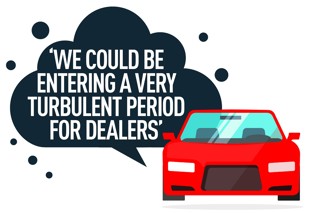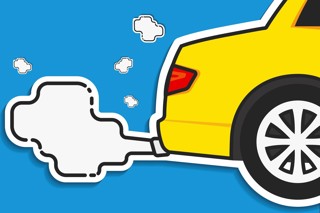Jato Dynamics has warned that car manufacturers are running the risk of huge fines for failing to meet EU emissions standards after new WLTP CO2 emissions tests triggered a 10g/km average increase in vehicles’ published output.
The automotive business intelligence expert has found that re-homologation to the WLTP test cycle is having a more significant impact than previously thought on NEDC correlated values obtained under WLTP, which are calculated using a conversion equation known as co2mpas.
Although Jato’s data suggested that only 20% (by volume) of model/versions have been published as being re-homologated under WLTP test cycles, an average of 10g/km discrepancy between NEDC values and new NEDC correlated values could result in significant penalties for manufacturers’ noncompliance with the CO2 fleet target at 130g/km and the 95g/km target of 2020/21.
Failure to meet the targets will see manufacturers face penalties amounting to €95 for every gram of CO₂ above the limit, multiplied by the number of cars they sell in 2020. These fines could reach or rise above the €1bn mark for carmakers.
News of the impact of the new WLTP test regime according to Jato’s research follows concerns that OEMs may be attempting to ‘cheat’ the new vehicle emissions tests in a bid to ‘manipulate’ future targets imposed by the EU.
The Financial Times reported last month on how manufacturers have allegedly been starting Worldwide Harmonised Light Vehicle Test Procedure (WLTP) and Real Driving Emissions (RDE) test procedures with discharged batteries – so that the engine works harder to generate a charge – and disabled start/stop systems in a bid to artificially inflate emissions results.
Evidence uncovered by the European Commission and seen by FT reporters indicates that manufacturers may be attempting to “trick” officials into setting more lenient future emissions standards in 2020, which is a transition year when a new baseline will be set for emissions against which future cuts will be measured.
Miguel Arias Cañete, EU commissioner for climate, told the newspaper: "We don’t like tricks. “We have seen things that we don’t like. We are going to do all the necessary work so that the starting points are the real ones.”
The new test result figures obtained by Jato indicate that the disparity between NEDC test data and NEDC correlated data under WLTP test cycle is higher than the 8g/km it monitored back in April 2018, and that the process of concluding the re-homologation of all vehicles could take longer than expected.
Warning of a possible further increase in this disparity, Jato said: “The majority of cars currently re-homologated are within the A and B segments, meaning this difference could increase even more when additional segments are included where weight is considered to be at +10.3g/km.
“This comes at a time when the carbon footprint of Europe is likely to further increase. Firstly, there’s a significant shift away from diesel to petrol vehicles across the EU member states, with registrations in H1 2018 showing petrol vehicles increasing their market share by 7ppts to now account for 57% of the market.
“In stark contrast, diesels have suffered a significant decline, with their share of market falling by 9 percentage points to 37% – the lowest for diesel vehicles this century.
“Finally, and perhaps more crucially, despite Alternative Fuel Vehicles (AFVs) increasing registrations by 30% in volume year on year, that fuel type still only accounts for 6% of the market.
“Significant progress is still needed for AFVs to plug the gap left by the declining diesel market, if the trend towards petrol vehicles continues.”
Once WLTP testing is fully enforced and more vehicles are re-homologated, Jato predicts CO2 values to be even higher combining the fuel type shift mentioned above and the WLTP re-homologation effect.
Further evidence of the effects on vehicle supplies for car retailers was also evidenced in Jato’s data.
Concerns were expressed that manufacturers’ re-testing of vehicles ahead of the September 1 deadline suggests that customer choice and dealer supply is likely to be impacted.
A spokesman for Jato said: “What is also worrying for the industry is that the publication of re-homologated models/versions is not progressing as quickly as expected.
“It has taken 11 months for 20% of existing model/versions in the market to be re-homologated and published, meaning the industry could face a backlog of vehicles that cannot be registered if it isn’t completed by 31 August.”

















Login to comment
Comments
No comments have been made yet.